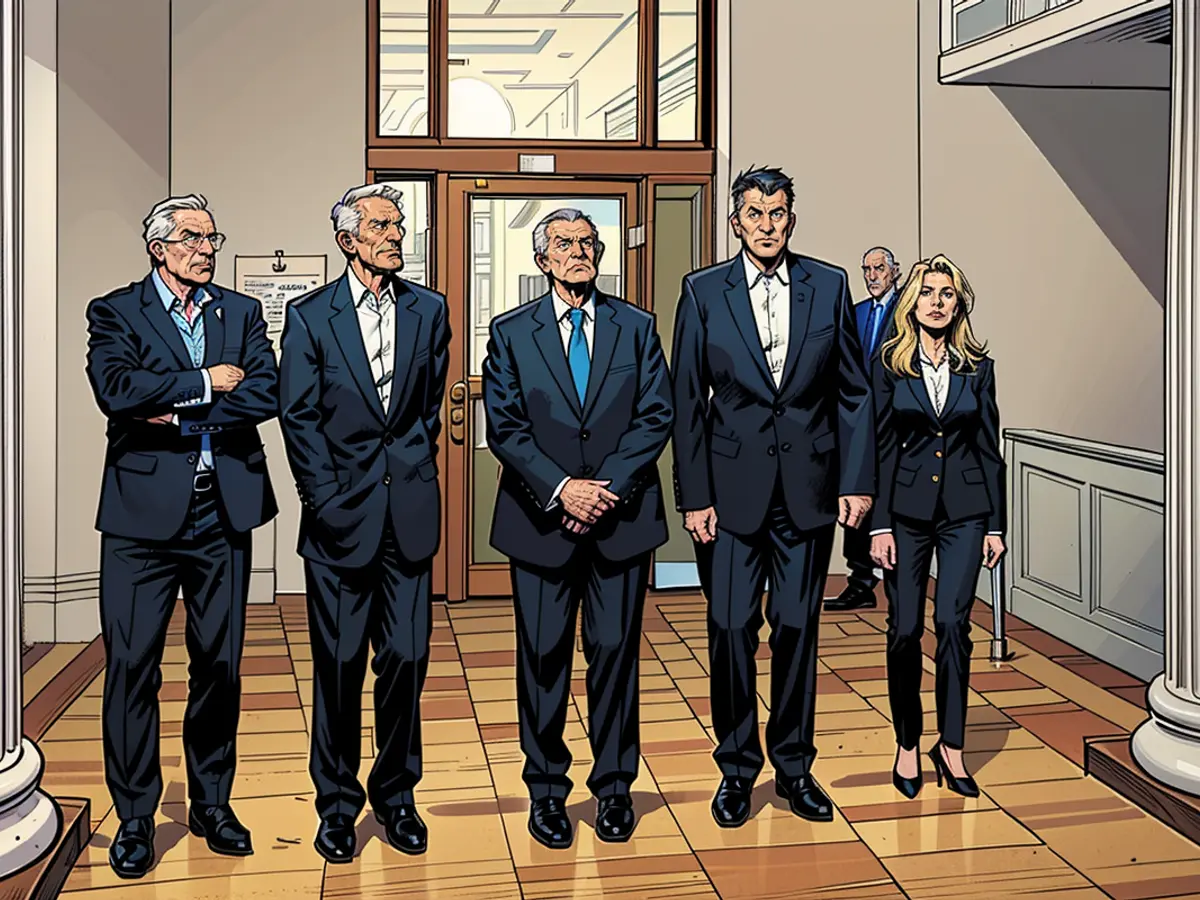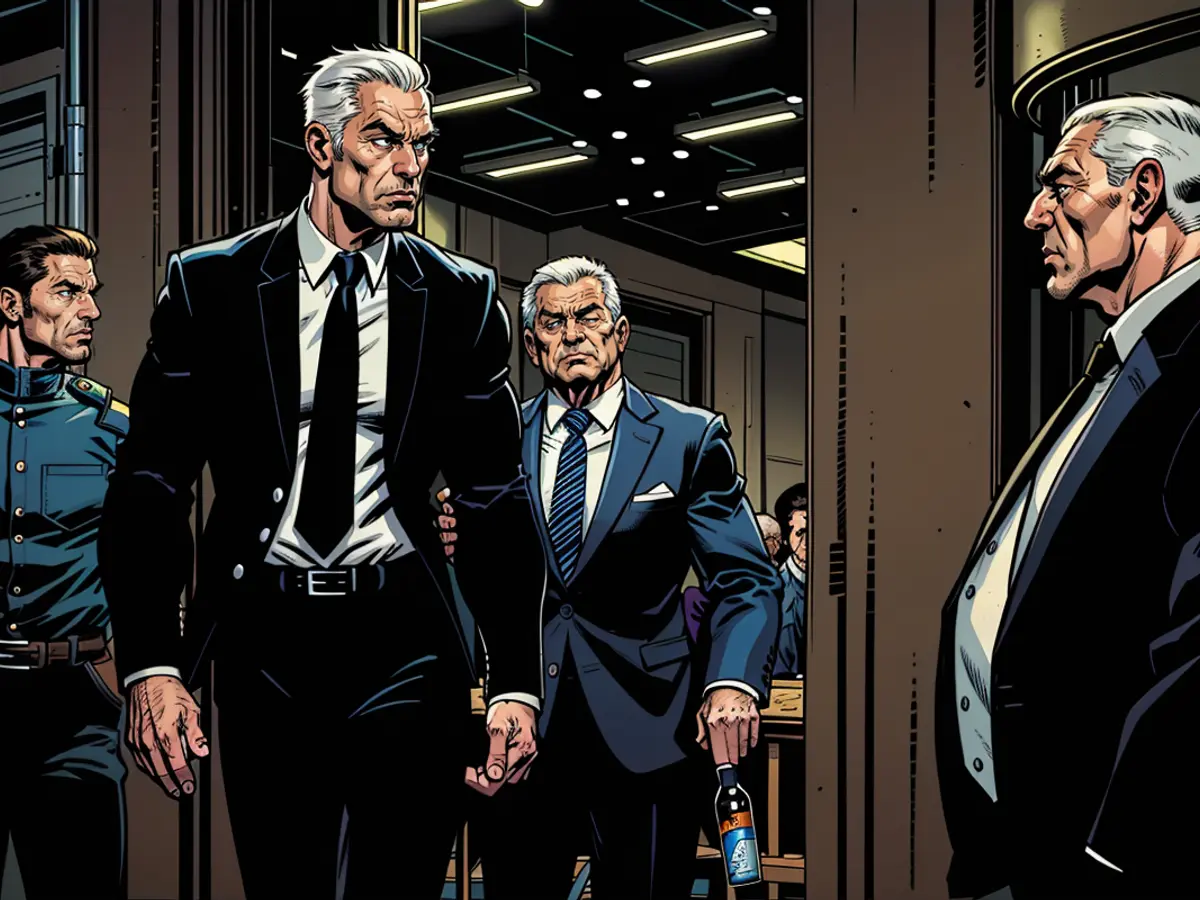- Former VW leader Winterkorn declarates: "I'm not an expert in exhaust emission purification"
Approximately a decade since Volkswagen's deceitful emission value adjustments in diesel vehicles were exposed, the long-serving CEO of Germany's largest automaker addresses the court in his trial at the Regional Court of Brunswick:
"Let me begin by saying that this trial before a criminal court is deeply impactful for me," expresses Martin Winterkorn on the second day of his trial in the diesel case. He had devoted "almost his entire professional life" to the Volkswagen Group, transforming it into "one of the most successful automobile companies globally" before his departure. Currently, he stands accused in court, something he vehemently denies.
He had voluntarily taken responsibility by making a payment to VW in 2021. "However, I find it hard to believe that I am being accused of criminal offenses, as the Public Prosecutor's Office in Brunswick is implying with their indictments," asserts the former VW CEO. Winterkorn is suspected of commercial fraud, perjury, and market manipulation, all related to manipulating the emissions data of Volkswagen vehicles in Europe and the USA between 2006 and 2015.
Winterkorn "failed to comprehend" the technical issues
The room is less crowded on the second day of Winterkorn's trial, but the courtrooms are still bustling with attendees. Winterkorn, dressed in a black suit and burgundy tie, smiles at a court official and nods to the prosecution before picking up his papers. The previous day, the three indictments against Winterkorn were read out for hours.
Winterkorn delivers his statement with a steady tone. He outlines his career, his positions, and the responsibilities associated with them, including serving as the CEO of VW from 2007 to 2015. He underscores that his role was mainly strategic and that it was not his duty to personally address individual technical challenges or tackle problems affecting vehicles that had been sold years ago in a specific market.
He elaborates on the complex structures of the Volkswagen Group, designed to keep day-to-day issues away from the board. "However, there is an obligation to provide detailed and truthful reports to superiors, particularly the board," Winterkorn explains. Only when they receive such information can they make "informed and appropriate decisions." Winterkorn attempts to clarify why the manipulated emissions information may not have reached him as early as claimed by the prosecution.
Later, when discussing the specific charges, Winterkorn admits, "At the time, I did not fully understand the technical challenges." He emphasizes that he is "neither an engine developer, nor an exhaust gas purification specialist, nor a software expert capable of managing engine and exhaust gas system controls." To grasp the functionality of this software, he would have required technical explanations from the specialists, which he did not receive at the time.
Germany has remained his home since 2020
Winterkorn speaks soberly, taking breaks to drink water and clear his throat, but overall, his voice remains firm. Nevertheless, he appears affected by the indictment in the USA. In 2020, the authorities there issued an arrest warrant against him. "That did strike a chord with me because I see no possibility of mounting an effective defense against the allegations raised in Germany from the US," admits Winterkorn. He could only have done so before an American court. "Since then, I haven't left Germany."
He also expresses emotion over the accusations from shareholders who feel misled by him. "The accusation by the public prosecutor that I, as CEO, failed to take sufficient action, misled customers and shareholders, and thus made myself criminally liable, affects me greatly at the end of my career," states Winterkorn. This was not the attitude he maintained as head of Audi and Volkswagen. If he had been aware of the events earlier, "I would not have hesitated to address and clarify the matter myself," Winterkorn claims.
Winterkorn also refutes the charges of market manipulation and false testimony. He feels indignant about how he was treated during the investigation by the parliamentary investigative committee of the German Bundestag. "I was questioned for nearly two hours," says Winterkorn. "Multiple times, attempts were made to question me about topics I had already stated I would remain silent on earlier." He had the choice to remain silent, but did not, believing it was inappropriate.
Winterkorn's defense attorneys, Caroline Hey, and Kersten von Schenck, take turns speaking on his behalf. For the conclusions, Winterkorn takes the stand once more. Before Winterkorn's remarks, his lawyers also made a statement, labeling the indictment as "confusing and dramatic" and criticizing the prosecutor's office for presenting little evidence in support of their claims. The judge explained at the beginning that talks about a potential plea deal happened after the first day of the trial, but it did not materialize.
The trial continues on September 12. The interrogation of Bernd Gottweis, the former head of the Product Safety Committee at Volkswagen, is planned for that day. A total of 89 trial days are scheduled. Should a conviction occur, Winterkorn faces a maximum prison sentence of up to ten years.
During his trial, Winterkorn mentions his long-term relationship with Volkswagen, stating, "I had devoted almost my entire professional life to the Volkswagen Group, transforming it into one of the most successful automobile companies globally before my departure." Later, when discussing the specific charges, he admits, "At the time, I did not fully understand the technical challenges. I am neither an engine developer, nor an exhaust gas purification specialist, nor a software expert capable of managing engine and exhaust gas system controls." These sentences contain the word 'VW' and reference the former CEO's involvement with the company.









